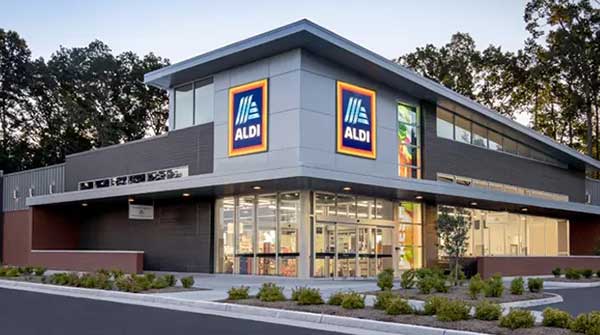Our current so-called discount food stores are controlled by the usual Canadian suspects
 This may come as a surprise to some Canadians, but our country doesn’t really have a real discount grocery chain. With higher food prices and a growing number of consumers seeking refuge from record-setting food inflation at the grocery store, real discount grocery stores would really come in handy. But the option is simply not there.
This may come as a surprise to some Canadians, but our country doesn’t really have a real discount grocery chain. With higher food prices and a growing number of consumers seeking refuge from record-setting food inflation at the grocery store, real discount grocery stores would really come in handy. But the option is simply not there.
Rebates have grown scarce in recent years as No Frills and other value grocers such as Empire’s FreshCo and Metro’s Food Basics took a noticeable step back from their ongoing fight with Walmart. Quebec is in even worse shape: shoppers can find Metro’s Super C or Maxi, owned and operated by Loblaw. Sobeys doesn’t even operate a discount chain in Quebec. All banners and stores are connected to just a handful of grocers controlling the Canadian market.
Now Walmart is doing its own thing with price locks, and Loblaw just ended its 14-week price freeze, which failed to show beyond a reasonable doubt that consumers were indeed saving money. While consumers likely saved some money in January, after a few months of double-digit food inflation, it was not clear to many.
 |
| Related Stories |
| Canada can easily fix its milk dumping problem
|
| Grocery receipt mistakes costing Canadians plenty
|
| Lessons from overpriced chicken breasts
|
Rebates are just not as overly aggressive as what you would see in European-based discount stores. Every now and then, some impending threat will shake our industry’s giants, and they try to fight for market share. But as soon as the danger passes, some sort of truce overwhelms the market. This is what happened when Target came and quickly went in 2015, and with Amazon Fresh a few years ago when rumours were swirling that they would attempt to enter the Canadian market.
For years, reports have suggested that both Lidl and Aldi would enter the Canadian market. We’re still waiting. But Lidl, a German international discount retailer chain, opened its first store in the United States in 2017 and now operates almost 200 stores. Aldi, another German company, now has over 2,300 stores in the United States. Both have similar business models, centring all of their efforts on discounts, plain and simple. With both, what you see is what you get, although Aldi does own Trader Joe’s in the U.S.
Unlike traditional grocery stores, both Lidl and Aldi operate on a restricted selection strategy, offering only a curated selection of private-label products and a smaller range of national brands. Lidl may have more branded products, depending on location. This leads to lower overhead costs and allows stores to sell products at lower prices when compared to competitors. Moreover, these discount grocers implement cost-saving measures such as a bring-your-own-bag policy, an incredibly minimalistic store design, and an efficient checkout process. In fact, in Europe, where Aldi and Lidl originate, clerks typically sit down while working at these discount grocery stores as most of the bagging work is done by customers themselves.
Lidl and Aldi’s strategies benefit the consumer with lower prices and contribute to a more sustainable and efficient retail environment. Some no-frills stores, such as No Frills, do some of that but not nearly at the same level. Lidl and Aldi are also known for their emphasis on quality: their products must meet strict quality standards while still being affordable.
In recent years, non-traditional grocers like Costco, Dollarama, Giant Tiger and Walmart have slowly shifted and tried to fill the discounting void we have in Canada. Costco stands out. Only 15 years ago, Costco was a mediocre food retailer, at best. Today, it processes many of its fresh products onsite, while the quality and freshness rarely disappoint. Deals are impressive, but shoppers need both a car and the space at home.
The bottom line is this. Canada needs a disruptor, a new player that will redefine competition in the grocery industry. Loblaw just converted more than a dozen stores into discount Maxi stores in Quebec simply because the company sees the writing on the proverbial wall. Grocers, coupled with the complacency of our regulators, have gotten comfortable Perhaps too comfortable.
One can only hope that either Aldi, Lidl or another non-Canadian discount grocer reads this column. Canadians are calling you.
Dr. Sylvain Charlebois is senior director of the agri-food analytics lab and a professor in food distribution and policy at Dalhousie University.
For interview requests, click here.
The opinions expressed by our columnists and contributors are theirs alone and do not inherently or expressly reflect the views of our publication.
© Troy Media
Troy Media is an editorial content provider to media outlets and its own hosted community news outlets across Canada.
